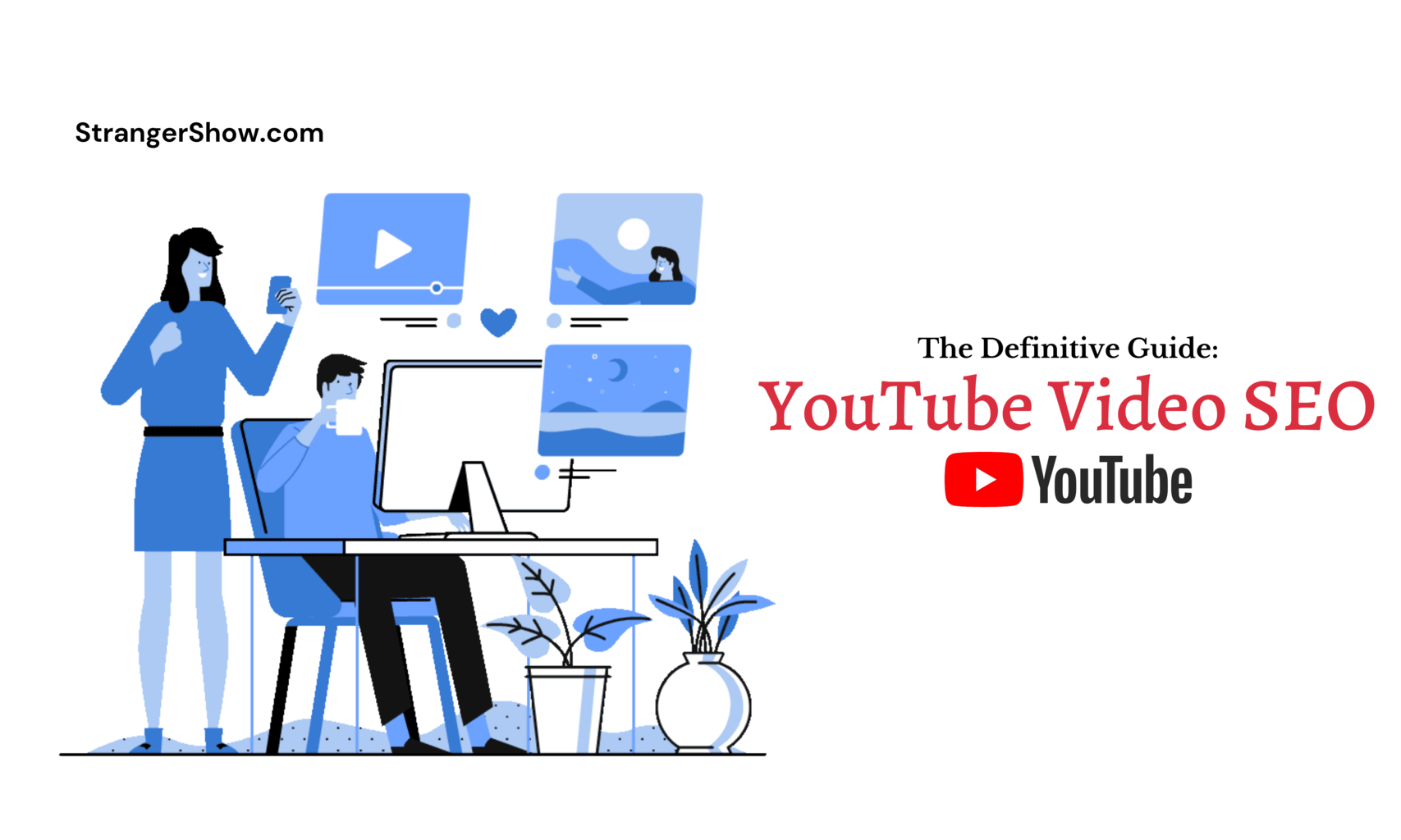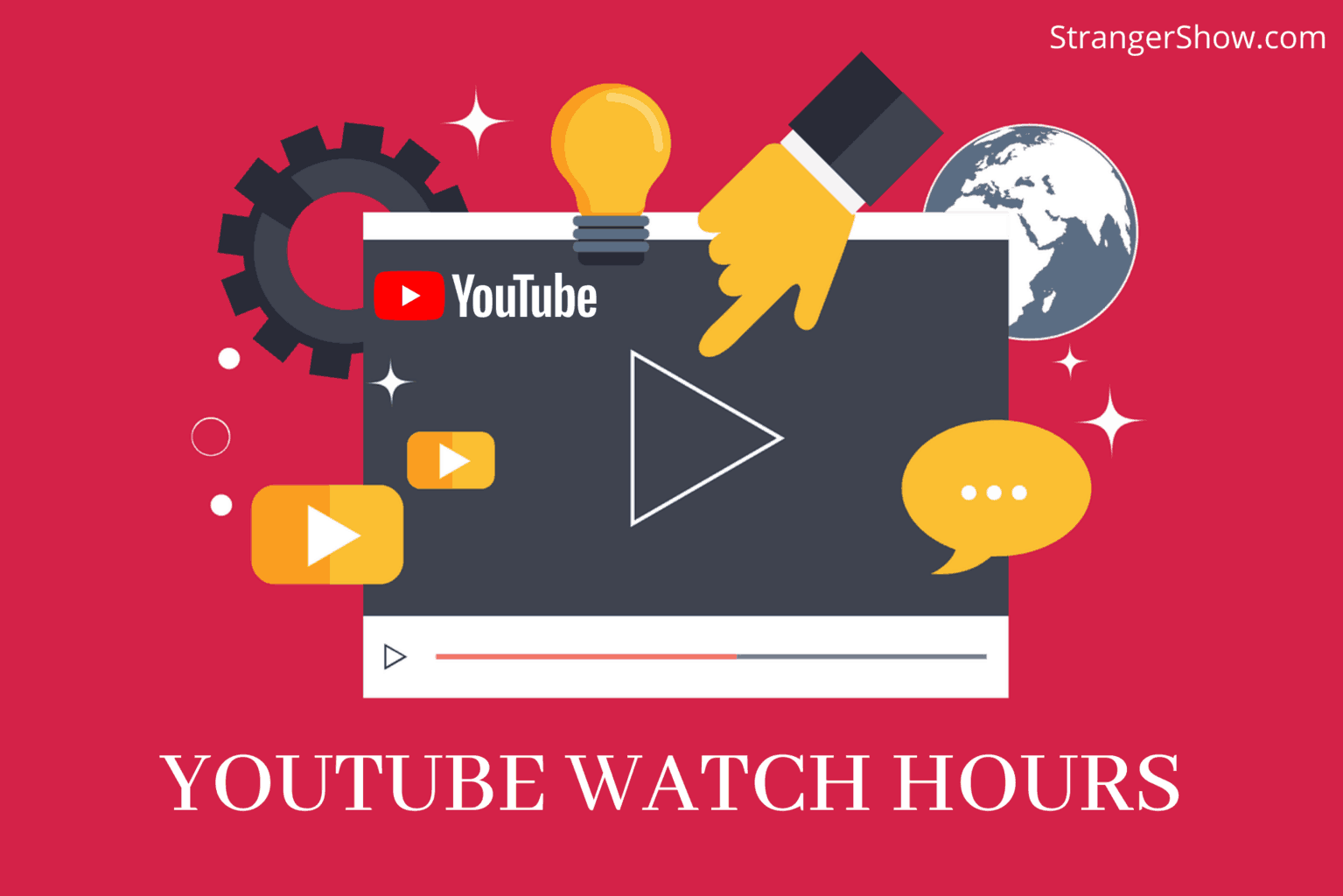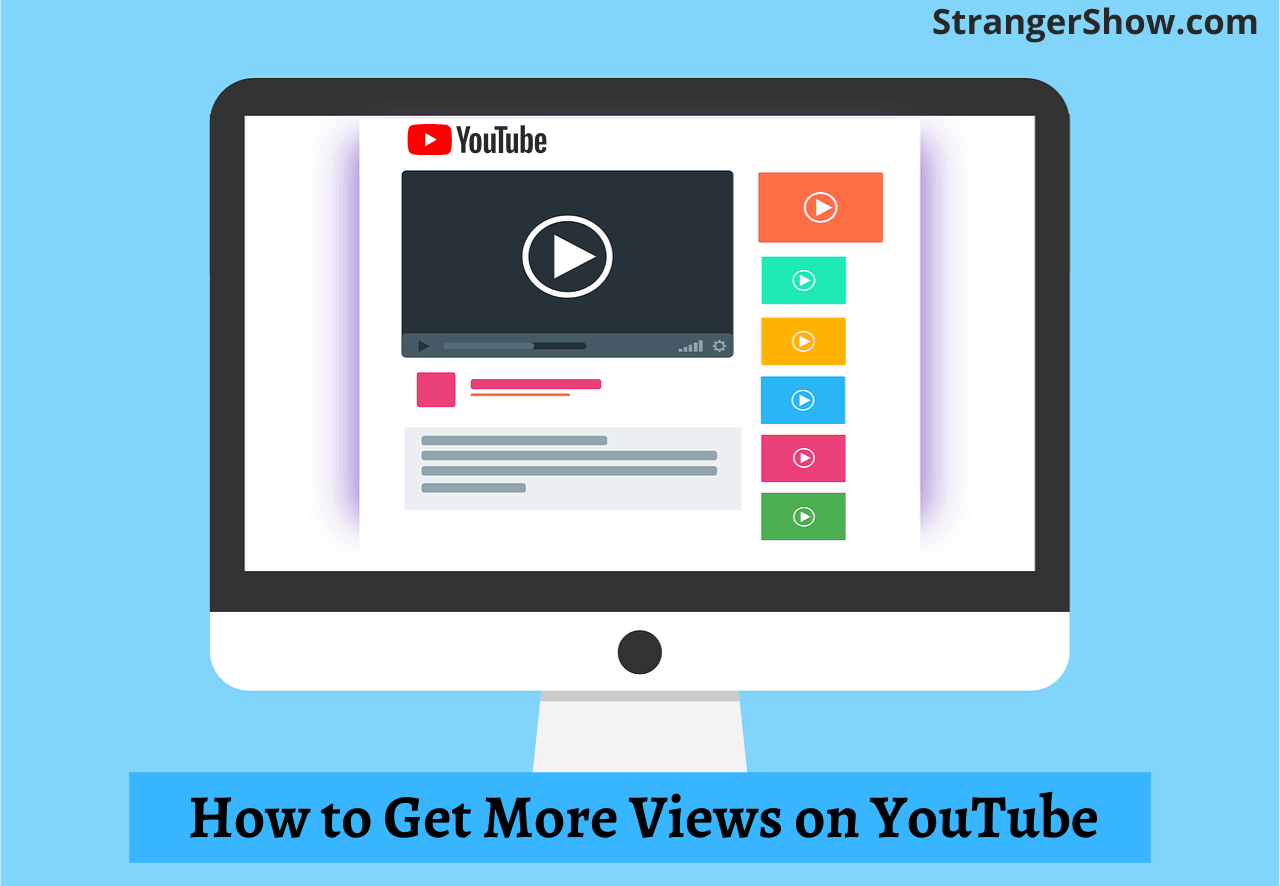In this post, I’ll show you EXACTLY how to rank YouTube videos quickly with the following steps.
In fact, this is the same process I’ve used to rank #1 on my YouTube channel for a few videos.
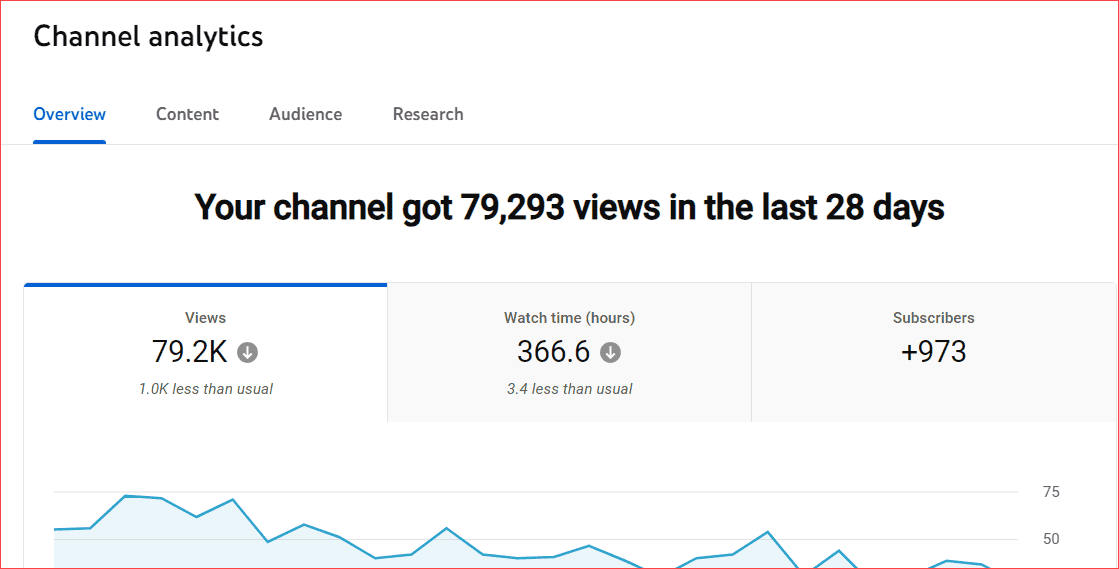
So, if you want to rank higher on YouTube in 2025 and beyond, you’ll love this new guide.
What is YouTube Video Ranking?
YouTube video rankings are introduced to sort out the billions of videos to satisfy the search phrases for providing the most relevant and valuable videos to the audiences in a short time.
Ranking high in search results is not just about visibility and relevance; it’s about attracting more views. When your videos rank #1 for a specific search intent, they have a higher chance of being seen, leading to increased views. As a YouTuber, understanding and mastering the YouTube algorithm process is the key to achieving this.
How to Rank YouTube Videos: Step-by-Step Guide
Initially, I was a loser on YouTube. I created videos and uploaded them to YouTube, but then failed.
Even I planned to give up. But before that, I decided to work out the winning strategy. I created it and applied it to my channel. (I gave it one last final try.)
It worked.
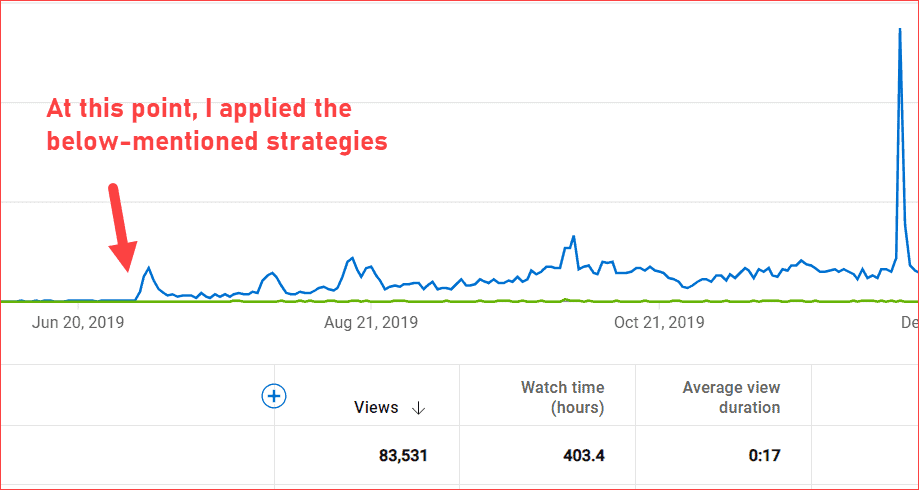
My videos have started ranking on the keywords that I dreamed about. I achieved the results using the same procedure I mentioned below.
I hope you understand what I’m talking about now. Let’s see what I tried to achieve these.
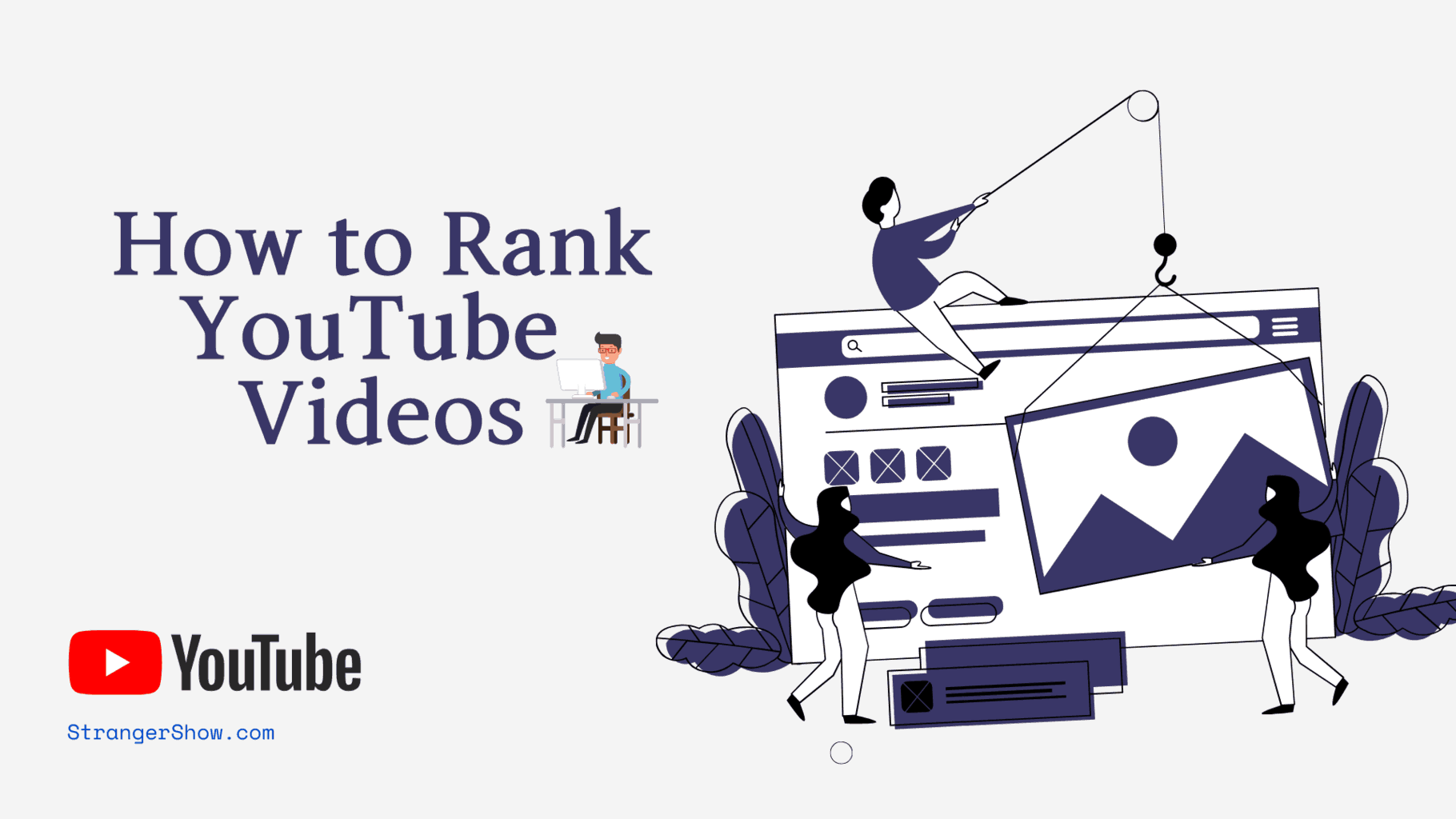
Step #1: Do YouTube keyword Research
The primary step to start optimizing your channel videos begins with keyword research.
Now, let’s dive into the exciting world of YouTube keyword research and learn how you can research your video’s keyword using the following steps.
The first and foremost step is to go to YouTube.com and start typing the target word in the search box.
For instance, I want to make a video about Bitcoin mining, so I’m just searching for those words on YouTube.
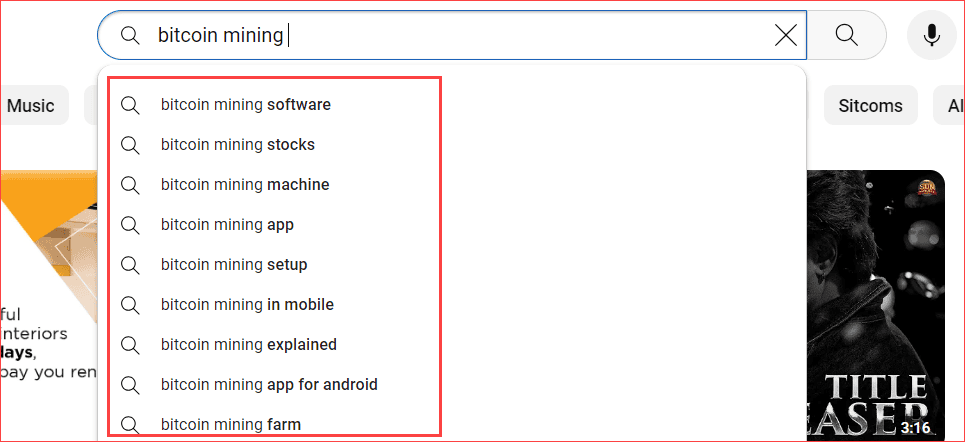
As you can see, there are a lot of suggestions for the keyphrase I searched for. Let’s call those results “related keywords.”
YouTube gives these related keywords to give an overview of what people are actually searching for on YouTube.
So, it’s time for you to create YouTube videos related to those keywords or incorporate these keywords into your videos.
No worries. In the following chapter, I will explain where you need to use these keywords in your videos.
Competitor Videos
On the other hand, you can do keyword research to rank your YouTube videos by analyzing your competitors’ keywords.
You may ask, “wait, can I able to see the keywords my competitors used?”
The answer is yes, and you must follow the steps below to get your competitor keywords with a ranking position.
Firstly, select the Popular videos from your competitor channel video section.
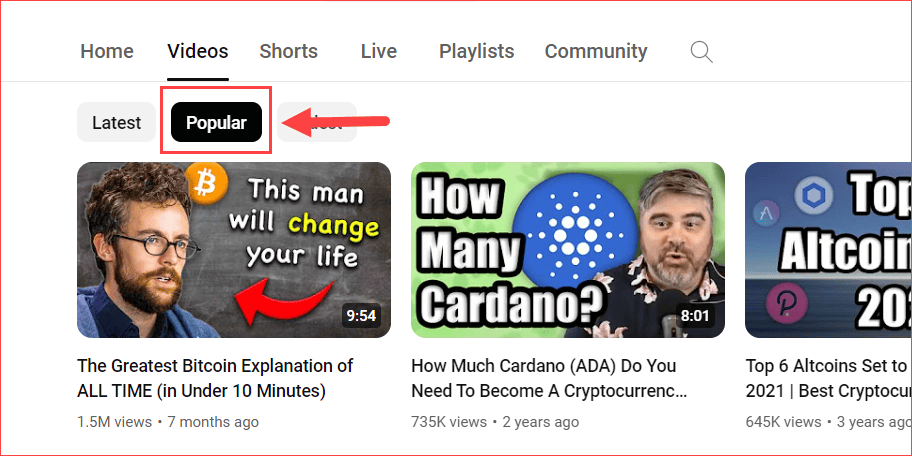
It will sort the videos based on popularity. Here, choose a video that you want to create that is better than that.
Now, play the video and keep concentrating a little more on the following steps.
To see what keywords your competitors use, you must install the free YouTube-certified browser extension channel management tool TubeBuddy.
To know more about the usage of this tool, read the TubeBuddy installation process here.
Once the setup is done, you will see the used keyword tags on the right side of the channel when you play the video. Note: TuebBuddy generates this, and it’s visible only when you install it.
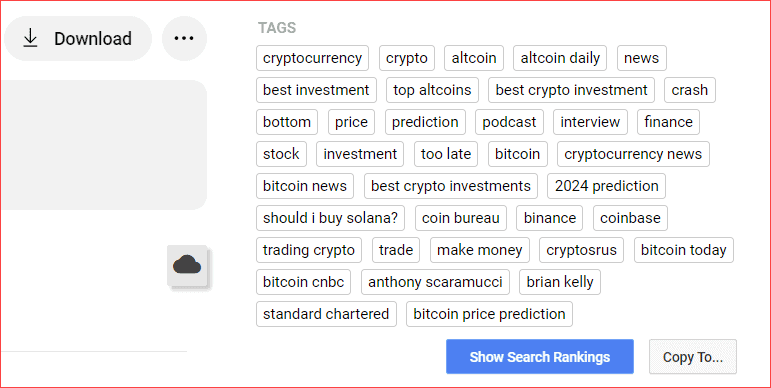
Also, when you click the “Show Search Ranking” option, it will show the ranking position of those keywords in the YouTube search.
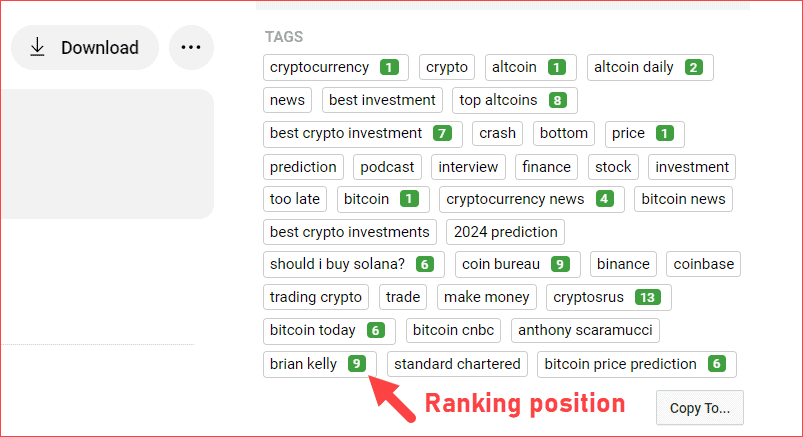
Hence, you can use those top-ranking position keywords as your target keywords on the channel.
This is one of the master-piece techniques for ranking your videos on YouTube.
By this point, you have the list of keywords your competitors used and YouTube-suggested working keywords in your hand.
Let’s see where you need to apply those below.
Step #2: Optimize Video Meta Data
YouTube can find your videos based on different metrics, such as the keywords used in the title, description, tags, thumbnails, etc.
Providing the proper optimized video metadata information on your channel is essential. This includes strategically placing your keywords list in the correct places, a practice that can greatly boost your video’s visibility on YouTube.
Let’s see where you need to use the target keywords:
- Video Title: The title should be very clear and replicate what you’re telling the video. Start the YouTube video titles with your target keyword.
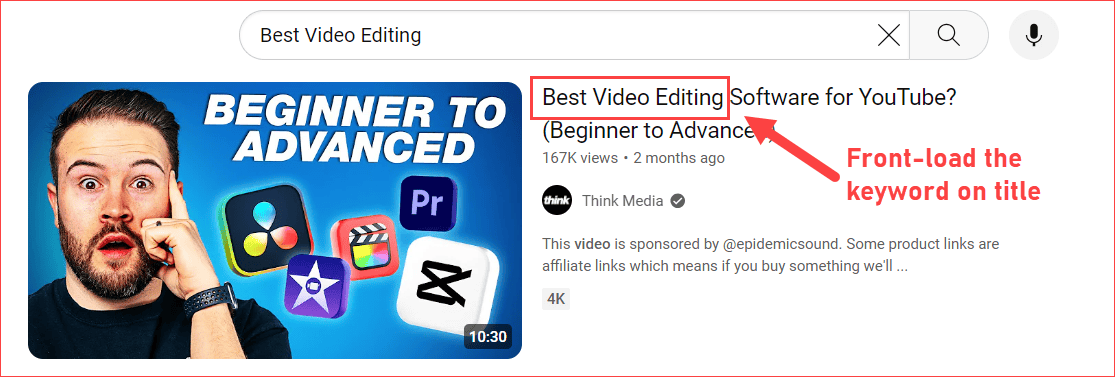
- Video Description: The place to explain briefly regarding the video on description. Here, you can add more than 1 keyword, but make sure it comes naturally along with the descriptive content.

- TimeStamp: Add the target keywords in the video timestamp, where it has the potential to reach and target your video ranking on Google.
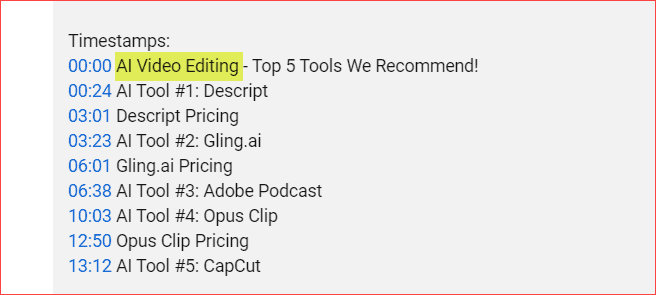
- Video Tags: YouTube can easily understand the categories of your videos when you properly mention the keywords listed on video tags. Use the combination of general and broad explanation keywords here.
These are the common places to utilize the keyword list, which helps YouTube understand that your videos fall under the searched intent category.
That’s how I applied my videos and saw the best results in ranking on the YouTube Search engine.
Step #3: Make Longer Videos
A recent study by Briggsby revealed a significant trend: audiences are more willing to watch longer videos than shorter ones. This finding, however, Does not apply to YouTube Shorts.
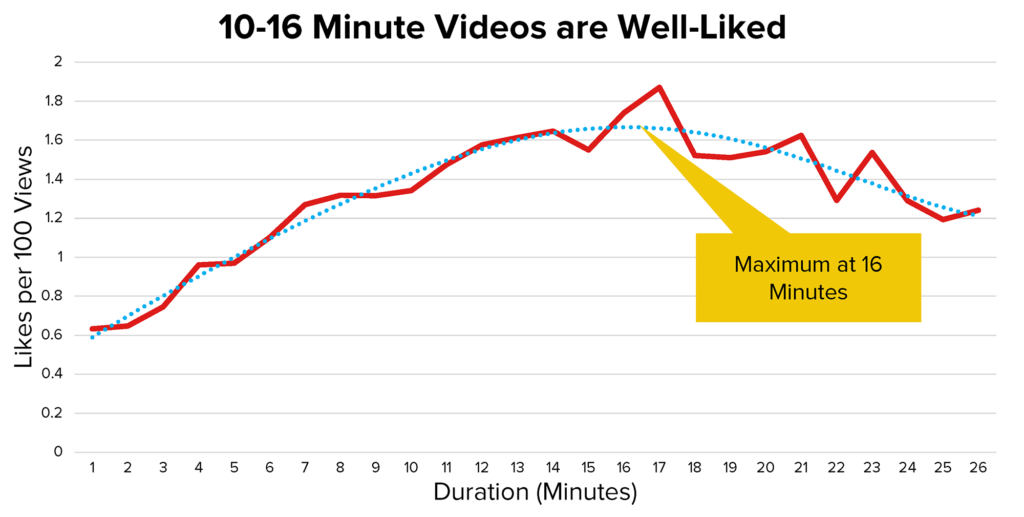
As they mentioned, a video duration of around 10 to 16 minutes performs well on YouTube, and it converts the likes and subscribers metrics.
However, less than 5 minutes of videos are getting lower audience interaction.
While longer videos can perform well on YouTube, it’s crucial to avoid adding unnecessary content. This ‘fluff’ cannot only dilute the quality of your video but also potentially harm its ranking.
When the video needs to be long, then make longer videos.
On the other hand, I recommend you create YouTube playlist videos on similar topics if the length of the videos is between 1.5 and 2 hours.
The reason for creating playlist videos is that people love to watch videos that are connected and more relatable.
Step #4: High-CTR Thumbnails
Day 1: YouTube ranked your videos at the top #1 search engine.
- No one clicked the video to watch.
Day 2: YouTube ranked your videos at the top #1 search engine.
- Again, no one clicked the video to watch.
Day 3: Do you think YouTube will again rank your video in the same position?
No one clicked your videos to watch, so why does it need to position you on the top?
Well, you must understand why no one clicks your videos even though it’s displayed on the search position.
The answer is Poor Thumbnail.
If you don’t know the importance of thumbnails on YouTube, please read the detailed article on YouTube thumbnails.
The thumbnail is where the audience decides whether to click on your videos or not.
During my initial day, I never cared about the thumbnails. I just left them as they were, as YouTube was showing. Later, I realized it was the worst part I ever made.
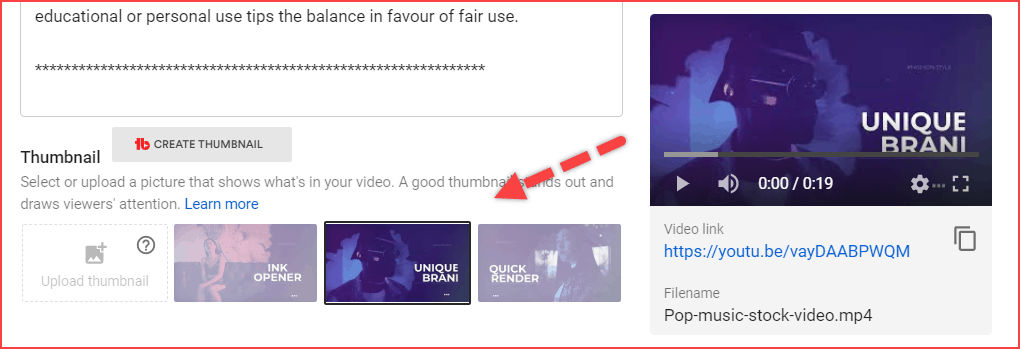
When your videos get a better click-through rate (CTR) percentage, YouTube might understand that audiences love to watch them. Hence, your ranking position on the search intent will increase.
Note: Plenty of software is available to understand what is written on an image—for example, Google Cloud Vision. Hence, use the target keywords and relevant images on the thumbnail.
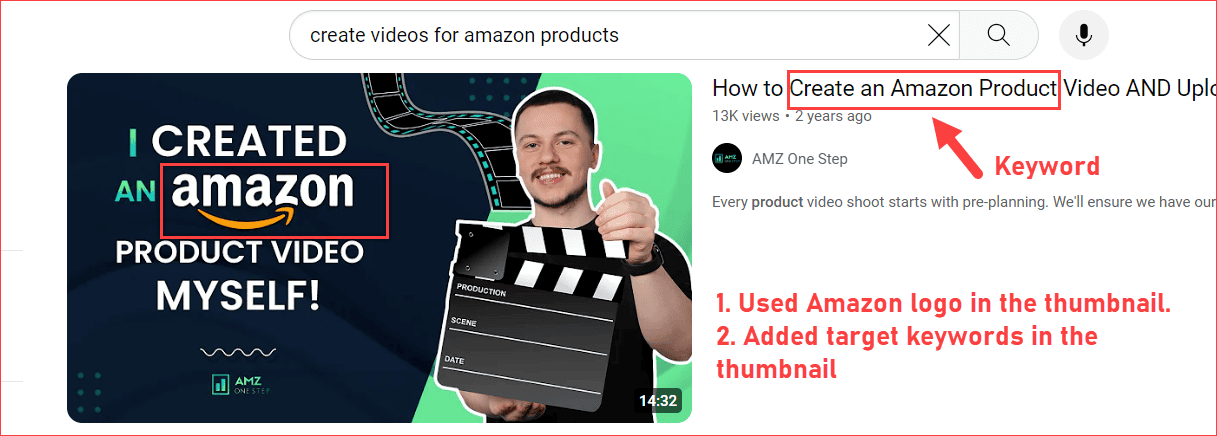
Step #5: Improvise Video Quality
When you check other related articles about how to rank YouTube videos, no one talks about video quality.
Understanding the significance of video quality is key. It’s not just about a 1% improvement; it’s about pushing yourself to enhance the quality of every video and beat your previous best.
So, what exactly do I mean by video quality? Is it related to equipment for filming videos or to content quality?
No doubt, I mean both.
- Video Filming Quality
Will you watch the video with poor quality on both audio and video?
That’s how your audiences think.
So, provide better video and audio quality than your previous videos.
However, I don’t suggest you buy high-quality cameras, microphones, and other gear to create top-class videos here.
Nowadays, even mobile cameras do better filming. In the meantime, the creativity level of your video making and what you have helps improve the video quality.
- Content Quality
Just tell it loudly, “Content is the King”.
Whether you’re rich or poor, educated or uneducated, when you have valuable content, then you’re the master.
Some of the recommended tips to improve video quality:
- Do the analysis and understand what core concept you’re trying to teach audiences in that particular video.
- Then, write the proper video script with the exact words of how you’re going to present.
When you have a great team to make a video at a movie level, but the content is not worthy, YouTube might put your video in the Recycle bin only.
Step #6: Create high-retention videos
It is a bit related to the existing step we talked about.
The person spends much time on your videos or channel, which means a high audience retention rate. Frankly, the YouTube algorithm loves this. Understand the graph below:
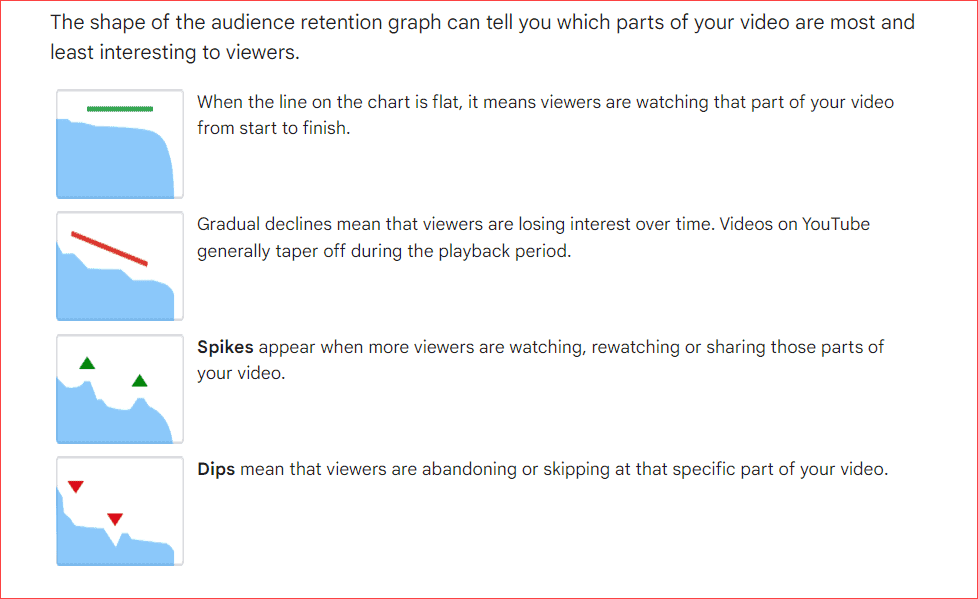
It’s important to understand that YouTube and its creators both make money from the ads displayed on the videos. This revenue model results from the value your content brings to the platform.
When the audience spends more time on the video, there is a high probability of watching more advertisers on YouTube.
So, the more you keep the audiences on YouTube around your channel or platform, the more opportunities there are to rank your YouTube videos.
Well, the question is:
How can you create a video that keeps audiences engaged?
Let me explain how it works for me. Most of them followed the same formula. Let’s see it here:
Start with Output
When your video provides some output at the end, I recommend that you provide a summary or teaser of the output at the beginning.
Look at the Cinecom.net video regarding how they make the video like the famous Maroon 5- Girls Like You.
At the beginning of the video, they just showed the output. That’s it.
Firstly, the audience was attracted by this point itself, and they unconsciously thought about watching the entire video to learn how you achieved it.
On the other hand, if the video doesn’t have any conditions or points to convey at the end, then start the video with a Summary of what you’re going to do.
Get to the Point
Once you start off the video with your introduction, immediately get to the point.
Don’t convey your audiences with the following words;
- Hey buddy, I’m blah…blah…blah…
- Subscribe to my channel…
- Sponsor advertisments…
You may or may not know in which situations the audiences watch your videos. They might be hurrying to finish work or chilling in a rolling chair.
In such a situation, it is not a good idea to drag them to the end of the video to watch the concept you mention at the beginning of the title.
This might lose the audience’s interest level. So, jump right into the video content rather than dragging them.
Provide Value and Repeat
We know longer videos perform better on YouTube’s ranking. The audience’s retention rate is also important. But it’s hard to maintain both, right?
To overcome that, ask the audience a question related to the video topic and reveal the valuable answers at the end.
This technique allows audiences to watch your entire video, even if it’s longer.
Also, you can repeat the same steps multiple times on a single video.
Step #7: Keep Watching Analytics
Give more importance to YouTube analytics, as it has much more information about your channel and videos.
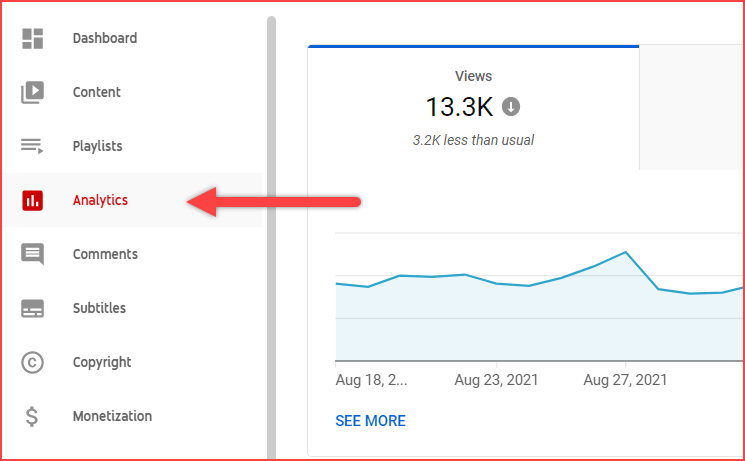
This information misleads a few people about watching the video views analytics continuously every hour to see the growth.
It’s not what I mean. If you do like it, I’m sure you’ll soon lose interest in your channel.
Tracking what is performing well and what is not performing is the place to optimize videos and accelerate channel growth.
Let me explain some channel analytics metrics you need to focus on because they help rank your YouTube videos.
- Watch Time: The essential total hours of watch time as your video receives.
- Top Content: Able to identify the top content videos based on views, watch time, subscribers count, impressions, and CTR.
- Traffic Source: It shows where your audiences are coming from, such as YouTube search, playlists, end screens, etc. This way, you can target the traffic sources from the following videos.
- Geography & Age: In a nutshell, understand the target audience’s location and age. Hence, you can make videos based on those audiences for better ranking.
- Returning & Unique Viewers: The number of viewers regularly watching your videos and the unique viewers’ reports helps you decide where you’re making mistakes to cover audience retention.
The general analysis of YouTube Analytics improves conversion on your channel. Do it at least twice monthly.
Step #8: Consistency
“Put You in YouTube”
Is uploading 1 video per day a good idea on YouTube in 2025?
I still have a doubt about that. When you asked this question to me three or four years ago, I would have said a big yes.
But now, it’s working differently.
As we know, AI technology has exploded like nothing in the last year. Anyone can generate scripts and make consistent videos.
Also, users might be bored to watch the same channel videos repeatedly throughout the day. We have to give the audiences some time to digest our content.
So, instead of approaching daily videos, do at least 1 video per week.
In the meantime, be consistent with your video flow.
Let’s say you upload one long-form video and one short-form video on your channel, then do the same consistently.
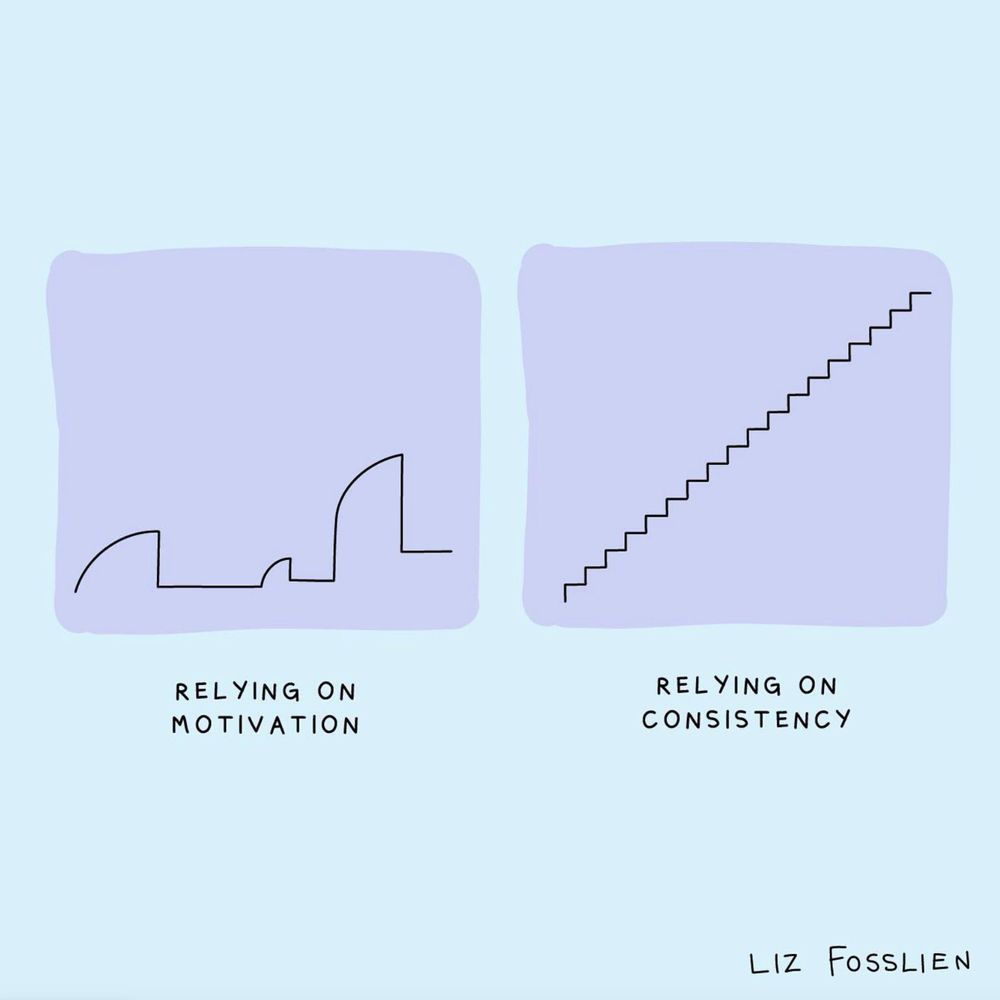
This way, YouTube first understands and believes that you’re producing fantastic content regularly on their platform, and henceforward, it promotes your channel to the audience.
This is a win-win strategy for you and YouTube, and it will prevent you from searching again for “How to rank YouTube videos” on Google.
Step #9: Rank YouTube Videos on Google
Google is the #1 search engine in the world, and it owns YouTube.
Have you noticed that when a person searches for keywords on Google, they might end up with a few videos?
Once you properly optimize the videos for Google, you can also rank them on the search engine.
So, here are the steps to rank videos on Google:
- Use the free keyword research tool to get the keywords that have a high potential to rank on Google.
- Add those keywords to the video title, mainly at the start of the title.
- Now, add those keyword phrases on the video timestamp; this is the crucial point that grabs most of the videos’ visibility on Google.
- Contact the related blog articles page and suggest them to add your videos to the articles.
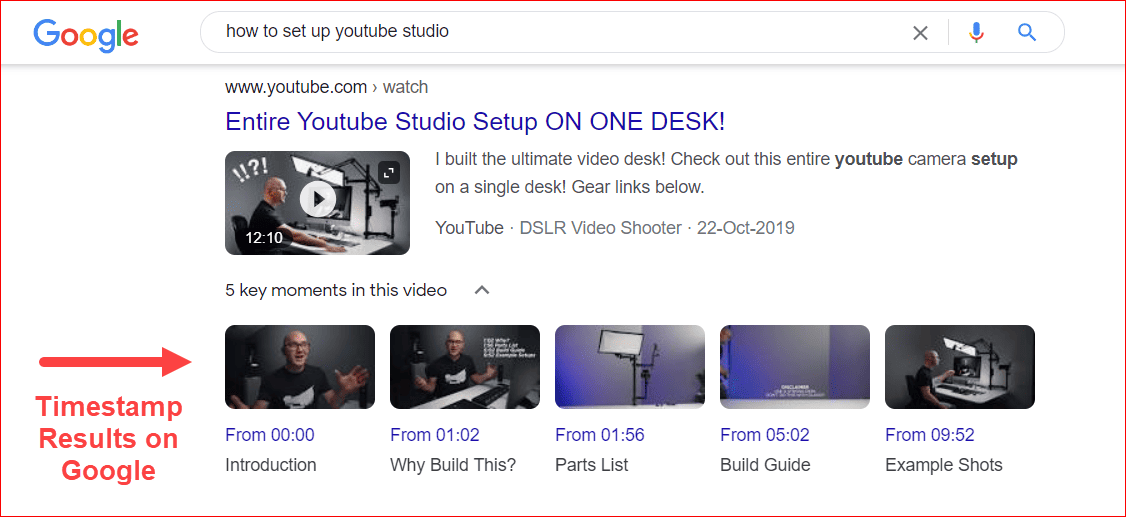
Those simple steps are enough to rank the video on Google. Also, ensure that your video is unique compared to other blog articles already ranking at the top.
Step #10: Other YouTube Ranking Factors
Add Subscribe Button
Adding a watermark subscribe button is another easy trick to rank videos. You may think it’s helpful only for getting more subscribers, but how does it help to rank videos?

Let me clear you that:
When you upload a video, YouTube will first show it to the most subscribers. If it goes well, YouTube will suggest the video to general audiences. So, the main ranking factor is how the video performs among your subscribers.
Therefore, in this case, you need to build your subscriber count. Also, I don’t want to discuss “how to increase YouTube subscribers” in this article. By the way, one of the easiest tricks to get more subscribers is adding a watermark subscriber button, which is directly proportional to ranking the videos.
Social Media Presence
Sharing the video on other social platforms may increase the video’s traffic. If the videos perform well on social profiles, they automatically bring you thousands of views.
Some of the platforms to promote YouTube videos,
- X
- Blogs
Engage more audiences with social profiles, and then it serves to build your channel. Remember that your channel is your brand.
Interact with Comments
A comment section is the only place you can initially engage with your audience. If the audience comments on your video mean maybe there are only two possibilities,
- Appreciate or suggest you for the video.
- Asking doubts.
YouTube algorithm also takes into account how you’re engaging with the audience.
Engaging with your audience is a high-priority task. You have to reply to their doubts in the comment section. So, try to respond to each comment even though their doubts have already been cleared in someone’s comment.
If you get any abusive comments or trolls, I recommend kindly ignoring them. It consumes your time and energy. Use that energy for your loyal audiences. Learn more about, how to get comments on YouTube videos.
Use Playlists
As I mentioned earlier, creating a playlist is another easy task that can double your views. It helps keep the audience a little longer on your channel. If the video length increases, try to split it into a separate playlist.

Playlist videos will play automatically when the current video ends; hence, it increases your channel views and boosts your ranking.
End Screen Templates
I’m retaining my audiences most of the time with the help of End Screen templates.
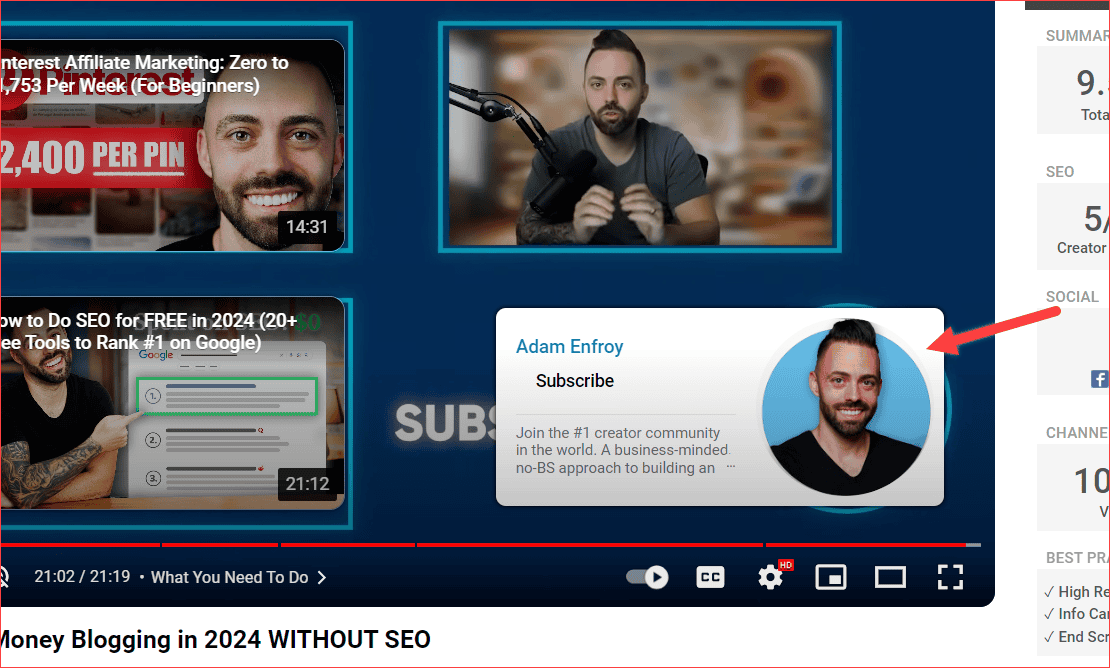
Firstly, the End Screen template is nothing but adding one or two related videos at the end of the video.
When I started using end-screen templates on my channel, I could significantly see an increase in traffic to my other linked videos.
Also, I noticed that the ranking positions of those videos for specific keywords have increased. Add YouTube end-screen templates to each video and ensure they are related to the current video.
FAQ’s
Conclusion
As I mentioned at the beginning of the article, I followed these techniques on my channel to start ranking the videos on YouTube.
You can start applying the changes to your video. Before that, I recommend you analyze your analytics and see where you currently stand on ranking position, monthly views, subscriber count, etc.
Once you report that, start optimizing the videos from the above points. I suggest you take the report to track your performance on your channel.
This way, you can understand what works for your channel and what is not.
So, start providing valuable content to the audiences, optimize the video for better search ranking, and wait for the results.
I hope you enjoyed this article. Feel free to comment here with your doubts, and I will reply to each comment on our blog articles.
Also, share this article with your YouTube partner.

Related Articles:
Sharing is caring!


